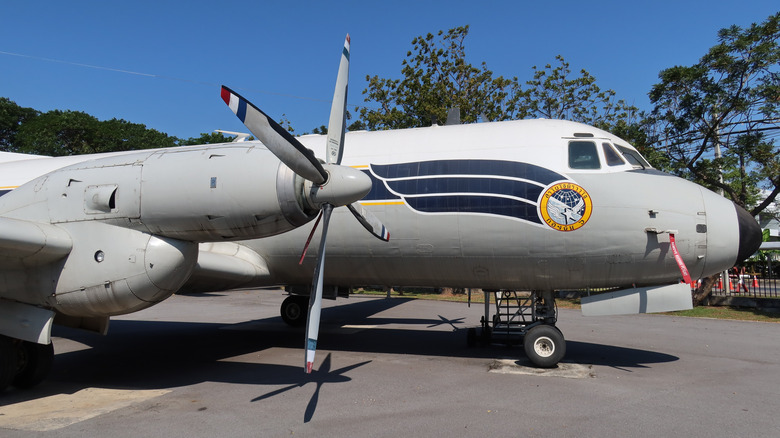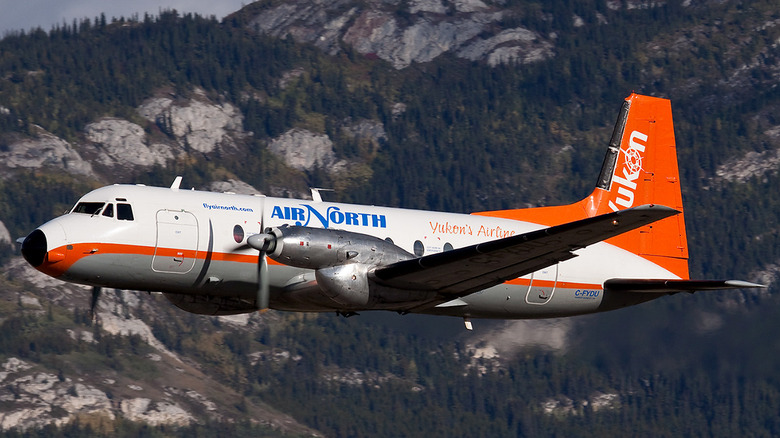This '60s British Turboprop Plane Is So Good, It's Still In Service Today
In the late 1950s, England's famous Defence White Paper explained that military aircraft development would taper off from producing military planes, motivating U.K. aircraft manufacturers like Avro to explore opportunities in the civilian market. The design that company Avro chose to pursue was the 748, a medium sized "feederliner" to transport passengers on short hops from small regional airports to larger operating hubs — a role that was then dominated by an aging fleet of Douglas DC-3s.
A focal point of the aircraft was its twin Rolls-Royce "Dart" turboprop engines, a simple, reliable design that was the first turbine in the world to drive a commercial aircraft. In 1962, the first production model Avro 748 was delivered and shortly thereafter, Avro was fully absorbed by Hawker Siddeley Aviation, who officially changed the name of the aircraft to the HS 748.
Depending on configuration and vintage, the HS 748 could transport between 44 and 52 passengers in a pressurized cabin that was also fully air-conditioned. The cruising speed was approximately 244 knots (280 mph) with a maximum range of 926 nautical miles (1,065 statute miles) with a full payload.
It was also built under license in India
Outside of the British production run, the HS 748 was also manufactured under license in India by Hindustan Aeronautics. Over the years, a total of 89 aircraft were built in India, known as the HAL 748. Most were utilized by the Indian Air Force, but 17 were assigned commercial duty for Indian Airlines.
Over the years, numerous improvements were made to the HS 748, mostly revolving around higher horsepower engines and increased weight capacity. In the late-1970s, the plane was more significantly redesigned as the Series 2B, sometimes referred to as the "Super 748." Revisions included a larger wingspan, "hush kits" for quieter engine operation, and a modernized cabin and flight deck.
Though initially intended for commercial use, a variation of the plane known as the HS 780 Andover was adopted as a transport by the Royal Air Force. In contrast to the HS 748, the HS 780 has an upswept tail to facilitate a large loading ramp at the rear. Cargo handling capability was also improved by shorter landing gear that lowered the aircraft closer to the ground.
Overall, a total of 381 aircraft were produced, including those built in India. In 2023, a handful of the durable planes are still operating around the globe, primarily as cargo carriers in Canada.
[Featured image by Jan Heistermann - Flugzeug-Fotos.de via Wikimedia Commons | Cropped and scaled | CC BY 3.0]

